Best Forex Trading Courses 2026
If you’re a new trader, you should consider pursuing a forex trading course to learn the ropes in the world of FX.
Written by Justin Grossbard
Updated:
- 67 Forex Brokers reviewed by our expert team
- 50+ years combined forex trading experience
- 14,000+ hours comparing brokers fee + features
- Structured and in-depth evaluation framework
Our broker reviews are reader supported and we may receive payment when you click on a partner site.
Forex Trading Overview
Forex trading is the buying and selling of currencies of different countries. Fx trading is done over the counter and is currently the largest liquid market globally. Many people worldwide have considered investing in it because they have realised it is a quick-profit-making market. It is an ever-open market because of the difference in time zones in the world.
Furthermore, markets are opening and closing frequently, providing consistency in the trade. To trade Forex successfully, you need to train in the market. Trading does not automatically allow you to make profits This requires an individual to acquire the skills necessary to trade over a long period.
This Compare Forex Brokers site offers a list of some top Forex Trading Courses both in Australia, overseas and online. Both beginners and existing currency traders can benefit hugely from some of these courses.
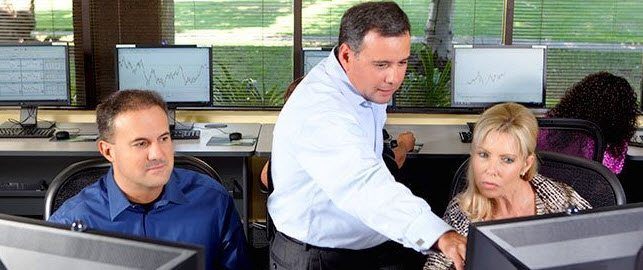
How to Choose the Right Trading Forex Academy
The best way to learn to trade in the currency market is through a FREE online course. However, most free training courses are developed following the same guidelines and teaching methods without giving you an edge to becoming a successful forex trader.
Which forex training courses should you choose?
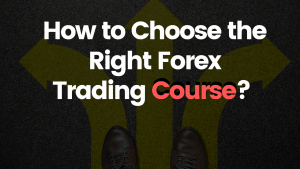 We’re going to answer that question, with some tips on how to pick the best forex training course and avoid scams. As a general rule, all trading courses should share 3 common features:
We’re going to answer that question, with some tips on how to pick the best forex training course and avoid scams. As a general rule, all trading courses should share 3 common features:
- The forex classes should be designed to accommodate any skill level from beginner to professional FX traders
- The course material should be practical, giving FX traders an edge in the market
- Paid courses should come with a 30-day money-back guarantee
Comprehensive Trading Education
The first criterion for selecting a good forex trading course is the availability of a multilevel educational material that will teach forex students the following:
- Beginner’s Guide (a step-by-step guide on how to trade Forex, an introduction to currency markets, and popular trading platforms like MetaTrader 4)
- Intermediate lessons (technical analysis, fundamental analysis, chart patterns, indicators, etc.)
- Advanced lessons (risk management techniques, how to master your psychology, etc.)
- Expert Forex lessons (advanced trading concepts, how to properly execute your trading strategy, etc.)
The ultimate forex trading guide for beginners should also include a one-on-one mentoring session. This way, the forex traders can solidify their Forex knowledge and improve their trading skills. Regardless of your trading experience, a good forex trading guide should be able to remind you of old trading concepts and teach you new price action setups.
Certification for Online Forex Courses
The second factor to consider when choosing online forex courses is if the educational material abides by the code of ethics imposed by the major regulatory bodies like the: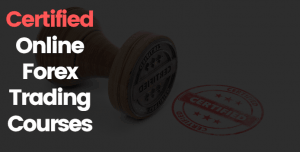
- Australian Securities and Investments Commission (ASIC) in Australia
- Financial Conduct Authority (FCA) in the UK
- Cyprus Securities and Exchange Commission (CySEC) in Cyprus
- The National Futures Association (NFA) in the USA
- Financial Sector Conduct Authority (FSCA) in South Africa
Trading forex isn’t the get-rich-quick scheme that many so-called forex Gurus portray it to be. If you want to avoid forex scams, stick with the reputable online trading courses offered by well-regulated forex brokers. A forex educational material that is certified by popular regulatory boards can give you the peace of mind that you’re getting trusted information.
Get Lifetime Access
Successful forex traders know that the learning process requires constant study and lifelong commitment. If you want to learn currency trading, you need lifetime access to forex courses that are constantly updated with new relevant content and live demonstrations, and other additional materials to keep students engaged.
How Many Types of Forex Trading Courses Are There?
 You can learn to trade the currency markets via two types of forex trading courses:
You can learn to trade the currency markets via two types of forex trading courses:
- Online Trading Courses
- One-on-One Training
If you want to learn from the ground up how to start trading the foreign exchange market, then online courses are your best choice. However, if you already have a solid understanding of how the currency pairs and different CFDs products work, you can opt for individual training.
There are free forex online courses, but there are also paid mentorship programs developed by veteran forex traders. By comparison, individual training programs are more flexible and can help forex traders achieve better results.
Additionally, the best forex trading courses should offer on-demand videos or real-time webinars. At the end of the day, if the trading guide can teach you a profitable day trading system with a good money management strategy you can consider your time wisely invested.
Australian Forex Trading Course Guide
Australia has a very popular forex market. Regardless, there are still many individuals that get burnt by volatile markets due to a lack of experience. Several Forex trading courses are offered in the country. The courses are both effective and informative. Their platforms for teaching are both online and offline. These courses help individuals understand the conceptual terms used in Forex trading and equip them with enough knowledge to be creative in coming up with successful trading strategies.
Easy Forex
Easy Forex’s main value proposition is their low fee, fixed spread Forex Trading account.
They charge no commissions, no withdrawal charges, guarantee a stop-loss rate, and a fixed spread of 1.8 pips. The training sources available provide demo accounts to beginners that enroll in their programs.
The popular Compare Forex Brokers site was published and is run by long-time forex industry operators. An experienced trader looking for a new broker usually looks at the bonus offers as they usually sway their decisions between one broker over another. However, if you are a beginner trader, a Forex Trading course should be the first step in your research process and NOT the level of bonus brokers offer.

Traders 4 Traders (T4T Capital Management)
A beginner should consider this Forex Trading course as his/her first forex course. It is a recommended elementary course that one should start with when venturing into Forex Trading. The course is not only simple but quick, although very informative. It is only offered online.
Trade 4 Trade was founded by a panel of Forex Traders who had over twenty years of experience working in major world banks. They started the course as an initiative to mentor new traders and turn them into experts. The course doesn’t come cheap, though. Investing in taking it will mould you into an upcoming trading expert. Several benefits are realized when you Forex Trading from this course.
Forex Trading gives one a chance for unlimited dialogue with different trading experts. You get the chance to acquire unlimited information from these experts. Upon completion of the course, a trader can apply for a free education package, and from this; you also get free passes at local workshops held in Australia.

Learn to Trade (Formerly Knowledge to Action)
Learn to Trade has been a popular trading academy since the year 2003 when it was founded by a Forex Specialist. It holds forums globally. The first thing to do when joining this could is to get a free Forex education package. The educational package entails Forex education content put together by experts. Customers are invited to free workshops around Australia which offer valuable guidance through Forex Trading.
When traders are exposed to the different types of Forex Trading strategies, they are given access to the graduate website. From the website, they can get Forex coaches who tutor them on how to develop their careers.
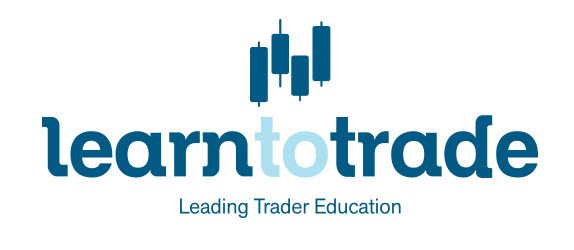
FXCM Trading Courses
This broker received a global award for being the best Forex broker. It was founded in the United States in 1999 as Forex Capital Market and is well-acknowledged as being among the best trading houses in America. Recently, they have expanded their resources and got two awards around their tools, forex trading software, and trading platform offerings. FXCM’s demo, forex systems, and learning-to-trade tools truly are market-leading and fantastic for new traders just finding their way in the world of Forex and wanting to be successful traders.
Other Online-Based Courses and Forums
There are multiple online courses one can consider taking up, not just the above-mentioned. Forums like the Forex Peace Army and Baby Pips are also very good and informative. They can still help mold one to be a successful trader. For a beginner forex trading in Australia, it is highly advised that you make an effort to do personal research and read broker reviews. Research will give you the advantage of helping you avoid significant losses. Moreover, it will help you grow more accustomed to the industry.
Be aware that forex trading courses only give you the know-how of how to trade and how to realise a profit through the subject content. Your evaluations and interpretations of the acquired information are what will give you the tools in coming up with profit-making trading strategies. Forex Trading courses are designed to give you that initial guidance.
As a beginner, start with Forex Trading comparisons and forums. Studying foreign exchange markets and trends also helps. Lastly, traders can gain some experience with brokers that offer demo broker accounts. Free demo accounts are a great starting point to grasping information learnt in Forex Trading courses.

Learn to Trade is one of Australia’s largest forex training providers which not only operates in Australia but also other worldwide locations having taught 10,000+ forex traders to date.
Their two-day seminars focus on the basics of forex trading, making it suitable for beginner traders and providing future traders with a range of trading strategies. Traders will learn essentials such as forex risk management tools, technical analysis and when to buy and sell forex pairs.
These courses are cheaper than T4T due in part to their relationships with brokers which they make you trade through. They are also run by trainers who have less corporate experience than the T4T team but for those just looking to modestly trial forex trading, this could be the provider for you.

FX Charts Daily provides regular outlooks on currency pairs (such as USD to EUR) focusing on helping traders digest the day’s movements and analysing charts. While this is an American website so most updates occur at night in Australia, their wraps and outlooks can be very helpful for Australian traders.
![]()
How to trade has a unique signal service and free trading room, allowing traders to interact with experienced traders. There is also the option to copy the traders into an account using their copy software.
The traders provide a 2-week trial period to copy their trading, allow automation and make adjustments for key events that impact currency values.

Traders 4 Traders is a Sydney based firm headed by Brad Gilbert who was a former bank trader with 20+ banking experiences from CBA to Citibank.
The company has an office in Sydney (71 Macquarie Street) where on-site courses are held. There is also an online live trading desk where you can watch real traders analysing and trading the market live.
There are also online courses where Australian forex traders help develop new traders skills, learn forex history and knowledge to start trading with a sufficient level of acumen.
Overall, T4T is the best forex training provider in Australia, but they also have a premium price tag on both their online training courses and off-site courses in Sydney. If you plan to make serious long-term forex trading, then this provider is well-suited.
About the Foreign Exchange Market
Currencies are traded at the foreign exchange market. Whether you realise it or not, the currency is important to people the world over. This is because you need to exchange currency to conduct foreign business and trade.
For instance, if you live in the U.K. and wish to buy wine from Italy, either you or the company you buy your wine from has to pay the Italians for the wine in Euros. Therefore, the U.K. importer would have to exchange the equivalent value of Sterling Pounds for Euros. This is also the case when you travel. For instance, an Australian tourist in Kenya can’t pay in dollars to see the wildebeest migration in the Tsavo because it is not the commonly accepted currency. Instead, the tourist has to exchange or convert his dollars for the local currency, in this case, the Kenyan shilling, at the current exchange rate.
This market is the most liquid and largest financial market in the world because of this need to exchange currencies. It dwarfs most of the other markets (including the stock market) in terms of size. The daily average traded value, for example, is around US $2 trillion.
About the International Market
One unique aspect of this international market is that foreign exchange has no central marketplace. Instead, currency trading is performed electronically over the counter.
The market is also open 24 hours a day, 5 and a 1/2 days a week. These currencies are traded in the major financial centres of the world – including Sydney, Paris, Singapore, Hong Kong, Frankfurt, Zurich, Tokyo, New York and London – across almost every time zone. Therefore, when the trading day in France ends, the forex market begins afresh in Hong Kong and Tokyo. As a result, this market is extremely active at all times of the day, with the price quotes changing every second.
Who Trades Currencies?
The daily turnover in the world’s currencies mostly comes from two main sources:
a) Foreign Traders
Foreign trade accounts for about 5% of the turnover. Generally, companies sell and buy products in foreign countries. Additionally, they convert the profits from foreign trade into domestic currency.
b) Speculation for Profit
Speculation accounts for about 95% of the turnover. Most traders in the foreign exchange market focus on the largest, most liquid currency pairs. Otherwise referred to as The Majors, these include the Swiss Franc, the British Pound, the Euro, the Japanese Yen, the Australian Dollar, the Canadian Dollar, and the US Dollar. More than 85% of daily forex trading affects these major currency pairs.
Why Trade Forex?
The main reason why people choose not to invest in online trading is that it’s difficult for them to understand online trading, while forex trading is very easy to understand. Forex trading is ideal for individuals who first have forex training and knowledge, although having a history in trading other financial products (e.g. shares) is not necessary. It’s perfect for people who work because it’s accessible from anywhere. Trading is open 24 hours a day, which along with its liquidity is one of the reasons why people are choosing Forex trading. Anyone can join and anyone can start with just a small amount of money, plus it requires very little time as transactions are done online.
Forex is unlike other financial markets in that investors can respond quickly to any currency fluctuation, whether they occur during the day or at night. After all, forex trading refers to trading currencies from different countries against each other. The other benefits of trading in the foreign exchange market include:
a) Market Volatility and Liquidity
For starters, the foreign exchange market is the biggest and most liquid among all financial markets. Daily activity sometimes exceeds US $4 trillion a day, with more than US 1.5 trillion of this coming from spot trading. The volatility within this market enables traders to benefit from fluctuations in exchange rates for speculative purposes. However, as a trader, you need to keep in mind that the greater the volatility, the greater the risk potential.
On the other hand, liquidity is a term used to refer to the number of sellers and buyers willing and able to engage in a trade at any given point in time. Assets with greater volatility are often traded frequently, thus translating into higher volumes of trade.
b) Low Cost of Trading
Another important term you should know is the spread. It refers to the cost (or price) to trade with most forex traders. The spread indicates the difference in amount between the asking price and the bid. Spreads in this market tend to be tighter (or much less) than those applied to such securities as stocks. As a result, over-the-counter forex trading is among the most cost-effective and profitable methods of investment trading.
c) Advantages of Margin-Based Trading
Most over-the-counter forex brokers tend to offer margin-based trading accounts. These accounts are different from credit-based accounts in the sense that when you trade in margin accounts, you first need to open a financial account with a broker before funding (depositing money in) the account.
After funding the account, you can trade as you wish. However, you need to ensure that there is sufficient margin left in your trading account. Using the leverage, you will be able to trade larger positions (than would otherwise have been possible) based on the actual balance in your account. Thus leverage provides greater potential for higher returns. The only downside to this is that you also face greater risk, and you can suffer higher losses quickly.
d) Potential Profit Irrespective of Market Direction
A short sale (or simply a short) refers to the selling of any given pair of currencies before you buy them. You can easily enter into short sales in the foreign exchange market. In such a case, you would need to buy that currency back for a lesser amount than you got when you first sold it. The difference will represent your loss or profit.
This ability to short-sell means that you can make a profit, irrespective of the direction in which the market moves. When rates increase, you can profit if you ‘go long’ (buy) on a currency pair before selling it for more than you paid. On the other hand, when rates fall, you can make a quick profit if you ‘go short’ (sell) a currency pair, then buy it for a lesser amount than you earned when you shorted that particular currency pair early. Forex training is critical to ensure you have the strategies deployed to maximise success. Overall, forex trading can earn you a profit irrespective of the market direction.
Finding The Right Forex Broker
Our forex broker comparison features throughout this site make it easy for currency traders to find the right broker for them. Brokers generally either focus on ease of experience and education for beginner traders, reputation and trust for intermediate traders or low spreads mixed with High Leverage Forex Brokers for experienced traders. The key is to make sure the broker is Australian-regulated to provide extra peace of mind compared to overseas-regulated forex brokers.
The foreign exchange market (Forex), also known as FX or the currency market, is a decentralised world market for currency trading. The primary investors in forex markets are primarily large international banks, although there are a considerable number of individual investors involved as well. The Forex market is a primary determiner of the relative values of different currencies. This will serve as your guide to Forex trading, how to get started, the hows and whys, tracking and manipulation of the market, and how to be a successful trader.
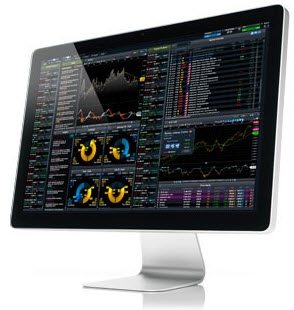
Getting Started in Forex Trading
Most of the people who get involved in Forex trading have little knowledge of how it works, and often even what it is when they get started. As a result, most first efforts of Forex traders result in losses. From these first efforts, they either quit or they take a step back, do a little more learning and research, and/or practice with a demo account, then return to the market for another try. Another popular option is a forex trading course either online or on-site in Australia. The good news in all of this is that after these traders give a live account another try, they often either break even or make money.
Types of Forex Traders
There are 3 basic types of Forex traders. These are the Short-Term trader, the Medium-Term trader, and the Long-Term trader. The defining characteristics and strategies are explained in the below sections:
Short-Term Forex trader
They are a lot like day traders in the stock market. They buy with the intent to sell in the short term after they recognise a small change in the price movement.
Pluses: This strategy works in theory but more often than not, fails in practice. Quick profits can be made with the ability to spot a price trend when it happens.
Negatives: Large investments are needed to leverage a decent profit. More often than not, however, the risk isn’t worth the losses that often occur.
Medium-Term Forex traders
Medium-term forex traders plan to hold onto positions for a longer period, enough to take advantage of better technical situations.
Pluses: Medium-Term investors require the least amount of capital of the three types since the leverage given by more investment is only done to boost profits.
Negatives: There are fewer of these opportunities to take advantage of, so they are harder to find.
Long-Term Forex traders
Long-term forex traders hold their investments for the long haul, either months or years. These investors base their decisions on long-term factors.
Pluses: Long-term profits are more reasonable since this strategy is based on more reliable fundamental factors.
Negatives: Long-term profits are made with larger capital investments since they can cover volatile movements of the market.
Tracking Your Forex Trading
Any businessman knows that the best way to track what he or she thinks the future will hold for their enterprise is by studying what has happened in the past and comparing it with how they think the market will be influenced by activity today. A similar method is used by Forex traders, who use currency reports to calculate their average profits. There are many types of these platforms available, but a common, popular version is called MetaTrader, available through most Best Forex Brokers In Australia.
When a forex trader wants to review their trading, they go to the report station of their account to run a report which is based on parameters that they can input. This report can be based on trades since the beginning of their history, or other given periods. It is important to understand that this is not an automatic or mechanical trading system. Rather, it is a recall of past activity that a trader can base a decision upon. In their most basic terms, where all or most of the technical signals of a currency point in the same direction, there is a high probability that a trading opportunity will result in a profit. A forex trading course will go into this in more detail.
Analysing a Trade
From the report you have generated, you will set up a trading program. This program will use as many technical indicators as you wish to employ, but the more you select, the more reliable your system will be, and fewer trading opportunities will be revealed. If, on the other hand, you choose fewer indicators, your program will be less reliable, but there will be more opportunities given.
Your report will show the tracking of trading on a minute-by-minute basis. This is called a candlestick chart since the bars take the image of a candlestick.
By studying the candlestick charts of trading, you will be able to get a good idea of the bullish or bearish nature of the market over the given trading period. It is a good idea to place exit points (both stop losses and take profits) even before you place an order for a trade. You should make these points at key levels and you should modify them only if you decide to change the parameters of your trade.
Manipulation of Forex
A problem that has reared its head in recent financial news is the occurrence of Forex manipulation by major banks, a problem that can have serious implications for investors. Manipulation can occur in many ways, but one of the primary methods that were recently employed was when traders who wanted to make a quick profit by buying up currencies after they knew what the starting price or what is called a “Fix” was set and before anyone else knew about the price at which the market would open.
Manipulation can also happen when word is leaked to certain investors about the upcoming trades being planned by other large companies.
The Best Time of Day to Trade
Unlike the stock market, which trades only during business hours, the Forex market is active in the four different parts of the world in their respective time zones. This means that the Forex market operates all day and all night, which can mean long days and long nights for active traders. The question that comes up often, as a result, is what is the best time of day to trade? Unfortunately, that’s a hard one to answer, since good buying situations can happen following market overlaps and news releases. As a result, those who watch the markets more often and for longer periods expose themselves to more trading opportunities.
Consider What Forex Broker You Trade With
A forex broker will impact trading style based on a few factors. The first is leverage available with many forex brokers offering 500:1 while others will be as low as 50:1 (OANDA). This may impact strategies and capital requirements. A second factor is spreads, which vary dramatically between forex brokers. Fees (spreads) do add up so keeping these low is critical and for some fx brokers, you need to weigh up spreads vs commissions between accounts. A third forex broker factor is the trading platform and the allowance of the broker to use third-party software or EAs to implement automated strategies.
The Bottom Line
The most important thing to remember with all trading strategies is to strike a balance between market overlaps and news releases. As a result, traders can realise greater profits when markets are more volatile, all the while keeping an eye on the latest market reports. This allows all levels of traders the opportunity to set a trading schedule that will give them peace of mind, while not having to watch the markets constantly. An expert forex trading course can provide key details into this strategy to help you achieve your profit goals from currency exchange products.
Justin Grossbard
Having traded since 1998, Justin is the CEO and co-founded CompareForexBrokers in 2014. Justin has published over 100 finance articles from Forbes, Kiplinger to Finance Magnates. He has a master’s degree in commerce and has an active role in the fintech community. He has also published a book in 2023 on investing and trading.










Ask an Expert
i want to learn currency trading from begnners level i am new one start from basic to advance so please how can i start and fees and duration of study
We would recommend to sign up with a broker for our website . Check our
beginner friendly brokers.
Nice article, Justin
Are paid courses worth it and how much should a beginner spend to learn forex trading?
There is plenty of good free online resources to get you started, paid courses are still very good, especially when it comes to covering complex topics.